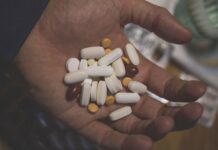What’s going on in the field of medical advances in gynecology, obstetrics and pediatrics? Post-pregnancy weight-loss pills captured much of the limelight in 2023 but it has left some other important scientific works to ponder upon.
New hope for Duchenne muscular dystrophy (DMD)
DMD is a genetic disorder causing faulty expression of dystrophin protein – crucial for muscle function – leading to muscle wasting. According to research published some years ago, it represents one of the most common recessive fatal inherited genetic diseases and children with DMD tend to have a shorter lifespan with progressive muscular disability.
In June, the FDA approved gene therapy for DMD increasing a hope for a better life for these patients. The recombinant gene therapy is designed to deliver a gene through a single intravenous dose for the treatment of ambulatory children aged four to five.
The therapy contains selected domains of dystrophin protein in normal muscle cells, helping to restore dystrophin function.
No prescription required for contraceptives.
Birth control pills, first approved in 1973, will now be available as over the counter (OTC) medication. FDA approved the birth-control pill as a non-prescription drug in July 2023. The birth control pills belong to the class of progesterone that prevents pregnancy by inhibiting ovulation. This ground-breaking approval by the FDA will promote reproductive autonomy.
Postpartum depression (PPD) now has an oral pharmacological intervention.
Previously PPD was treated under in-patient settings with 60 hours long intravenous medication.,
In August, FDA t raised the green flag for oral medication for PPD. Patients can take this medicine at home and positive prognosis in the mental health condition can be witnessed within three days. The oral medicine for PPD is different from the rapid-acting positive allosteric modulator of the GABAA receptor used to treat major depressive disorder (MDD).
Additional vaccination during pregnancy
FDA also approved last year, the respiratory syncytial virus (RSV) vaccination for pregnant women and older adults. RSV vaccine isa type of monoclonal antibody targeted to synthesize RSV specific antibodies, ensuring comprehensive protection. The vaccine earned over-night popularity, leading to limited supplies. Thus, U.S. Centers for Disease Control and Prevention recommended reservation of vaccine stocks for the babies who are at highest risks.
Gene Therapy for Sickle Cell Disease (SCD)
Further approval in gene therapy came in the month of December by FDA. CRISPR/Cas9 (clustered regularly interspaced short palindromic repeat, CRISPR-associated) gene-editing therapy was approved for the treatment of Sickle Cell Disease (SCD).
A genetic mutation makes red blood cells become crescent- or “sickle”. These sickled red blood cells do not bend or move easily and can block blood flow to the rest of the body. Therefore, serious problems could arise such as stroke, eye problems, infections, and episodes of pain called pain crises. Also, according to Frangoul and team, patients have shorter life-span causing anemia and splenomegaly.
CRISPR/Cas9 gene-editing therapy is targeted to synthesize normal Red Blood Cells helping to treat this disease. . By March 2024, FDA is planning to use CRISPR/Cas9 gene-editing therapy for the treatment of transfusion dependent beta-thalassemia, another blood borne genetic disorder.
New ray of hope for treating morning sickness
Morning sickness is common among several pregnant women, leading to severe dehydration and weight loss. Research published in Nature showed that a surge of hormone (GDF15, acting on the brain stem), triggered by the fetus causes morning sickness. Women having low levels of protein in blood are susceptible to morning sickness, scientifically known as hyperemesis gravidarum. This path-breaking discovery can help in identification of susceptible women, leading to effective management of the disease.
References
Frangoul, H., Altshuler, D., Cappellini, M. D., Chen, Y. S., Domm, J., Eustace, B. K., … & Corbacioglu, S. (2021). CRISPR-Cas9 gene editing for sickle cell disease and β-thalassemia. New England Journal of Medicine, 384(3), 252-260. DOI: 10.1056/NEJMoa2031054
Mbakam, C. H., Lamothe, G., Tremblay, G., & Tremblay, J. P. (2022). CRISPR-Cas9 gene therapy for Duchenne muscular dystrophy. Neurotherapeutics, 19(3), 931-941.
DOI: 10.1007/s13311-022-01197-9
What is sickle cell disease? | NHLBI, NIH. (2023, August 30). NHLBI, NIH. https://www.nhlbi.nih.gov/health/sickle-cell-disease#:~:text=In%20sickle%20cell%20disease%2C%20red,the%20rest%20of%20the%20body.
Fejzo, M., Rocha, N., Cimino, I. et al. GDF15 linked to maternal risk of nausea and vomiting during pregnancy. Nature 625, 760–767 (2024). https://doi.org/10.1038/s41586-023-06921-9.
DOI: https://doi.org/10.1038/s41586-023-06921-9





